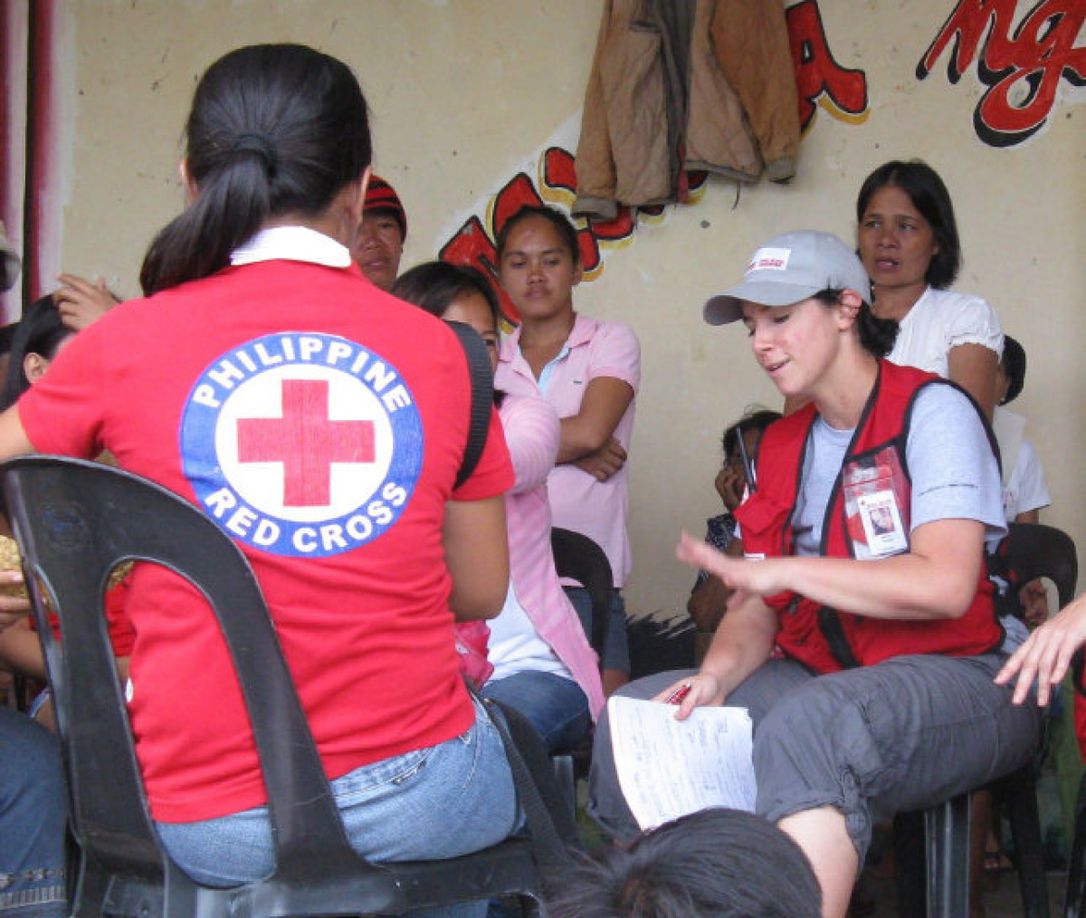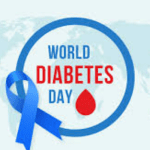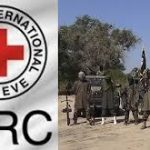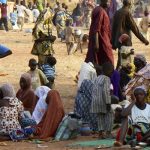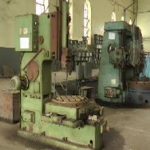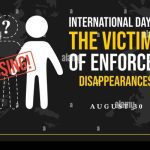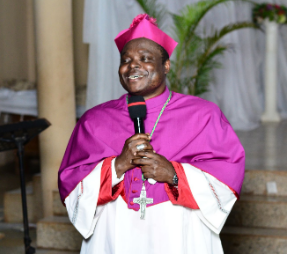/https://www.thestar.com/content/dam/thestar/life/health_wellness/2013/11/26/canadian_red_cross_provides_psychological_first_aid_to_tyhoon_haiyan_survivors/sandra_damota_trains.jpg) Displaced persons in Northeast Nigeria seem to be on their own without any aid from the International Committee of the Red Cross.
Displaced persons in Northeast Nigeria seem to be on their own without any aid from the International Committee of the Red Cross.
This is because many health workers and care givers have had to flee violence hit areas, thereby limiting access to healthcare, food, water and shelter.
Our correspondent, Sarah Ayeku had an exclusive interview with members of ICRC, they told her that for now, their operations in some parts of borno have been suspended until their safety can be guaranteed.
Founded in 1863, the international committee of the red cross has over the years protected and assisted victims of armed conflict around the world.
The ongoing attacks and rise in the death toll in northeast nigeria has placed the country among the top five countries in dire need of humanitarian assistance. These countries include Syria, Iraq, south sudan, Nigeria and Somaila.
The ICRC operates in 17 states of the federation but is handicapped in most parts of borno state where the humanitarian crisis is heightened.
According to the ICRC, the health facilities and shelters in Rann, Borno state have been destroyed. but one great challenge is that safety of health workers is not guaranteed.
In 2018, three female aid workers were abducted in Rann, although there are reports that Saifura Shmed and Hauwa Liman had been killed by the Boko Baram insurgents, there is no news on the third aid worker.
As a rule guiding the ICRC, they cannot use the armed forces to shield themselves, they can only rely on dialogue with all the parties involved in the conflict. They don’t pay ransoms, but can only negotiate for any abducted worker. It is a dangerous path they signed up for, to help the ones affected by conflict.
Although it may not be able to extend its hands of support to the displaced persons in the these affected communities, the ICRC seeks to solidify its relationship with the media.
In case of emergencies, journalists are also susceptible to dangers hence this training to equip them on administering first aid.
According to the United Nations, more than 7 million people in Nigeria, are in need of urgent humanitarian assistance including 1.8 million internally displaced people and more than 800,000 women , children and men living in inaccessible areas.
/https://www.thestar.com/content/dam/thestar/life/health_wellness/2013/11/26/canadian_red_cross_provides_psychological_first_aid_to_tyhoon_haiyan_survivors/sandra_damota_trains.jpg) Displaced persons in Northeast Nigeria seem to be on their own without any aid from the International Committee of the Red Cross.
Displaced persons in Northeast Nigeria seem to be on their own without any aid from the International Committee of the Red Cross.
This is because many health workers and care givers have had to flee violence hit areas, thereby limiting access to healthcare, food, water and shelter.
Our correspondent, Sarah Ayeku had an exclusive interview with members of ICRC, they told her that for now, their operations in some parts of borno have been suspended until their safety can be guaranteed.
Founded in 1863, the international committee of the red cross has over the years protected and assisted victims of armed conflict around the world.
The ongoing attacks and rise in the death toll in northeast nigeria has placed the country among the top five countries in dire need of humanitarian assistance. These countries include Syria, Iraq, south sudan, Nigeria and Somaila.
The ICRC operates in 17 states of the federation but is handicapped in most parts of borno state where the humanitarian crisis is heightened.
According to the ICRC, the health facilities and shelters in Rann, Borno state have been destroyed. but one great challenge is that safety of health workers is not guaranteed.
In 2018, three female aid workers were abducted in Rann, although there are reports that Saifura Shmed and Hauwa Liman had been killed by the Boko Baram insurgents, there is no news on the third aid worker.
As a rule guiding the ICRC, they cannot use the armed forces to shield themselves, they can only rely on dialogue with all the parties involved in the conflict. They don’t pay ransoms, but can only negotiate for any abducted worker. It is a dangerous path they signed up for, to help the ones affected by conflict.
Although it may not be able to extend its hands of support to the displaced persons in the these affected communities, the ICRC seeks to solidify its relationship with the media.
In case of emergencies, journalists are also susceptible to dangers hence this training to equip them on administering first aid.
According to the United Nations, more than 7 million people in Nigeria, are in need of urgent humanitarian assistance including 1.8 million internally displaced people and more than 800,000 women , children and men living in inaccessible areas.
/https://www.thestar.com/content/dam/thestar/life/health_wellness/2013/11/26/canadian_red_cross_provides_psychological_first_aid_to_tyhoon_haiyan_survivors/sandra_damota_trains.jpg) Displaced persons in Northeast Nigeria seem to be on their own without any aid from the International Committee of the Red Cross.
Displaced persons in Northeast Nigeria seem to be on their own without any aid from the International Committee of the Red Cross.
This is because many health workers and care givers have had to flee violence hit areas, thereby limiting access to healthcare, food, water and shelter.
Our correspondent, Sarah Ayeku had an exclusive interview with members of ICRC, they told her that for now, their operations in some parts of borno have been suspended until their safety can be guaranteed.
Founded in 1863, the international committee of the red cross has over the years protected and assisted victims of armed conflict around the world.
The ongoing attacks and rise in the death toll in northeast nigeria has placed the country among the top five countries in dire need of humanitarian assistance. These countries include Syria, Iraq, south sudan, Nigeria and Somaila.
The ICRC operates in 17 states of the federation but is handicapped in most parts of borno state where the humanitarian crisis is heightened.
According to the ICRC, the health facilities and shelters in Rann, Borno state have been destroyed. but one great challenge is that safety of health workers is not guaranteed.
In 2018, three female aid workers were abducted in Rann, although there are reports that Saifura Shmed and Hauwa Liman had been killed by the Boko Baram insurgents, there is no news on the third aid worker.
As a rule guiding the ICRC, they cannot use the armed forces to shield themselves, they can only rely on dialogue with all the parties involved in the conflict. They don’t pay ransoms, but can only negotiate for any abducted worker. It is a dangerous path they signed up for, to help the ones affected by conflict.
Although it may not be able to extend its hands of support to the displaced persons in the these affected communities, the ICRC seeks to solidify its relationship with the media.
In case of emergencies, journalists are also susceptible to dangers hence this training to equip them on administering first aid.
According to the United Nations, more than 7 million people in Nigeria, are in need of urgent humanitarian assistance including 1.8 million internally displaced people and more than 800,000 women , children and men living in inaccessible areas.
/https://www.thestar.com/content/dam/thestar/life/health_wellness/2013/11/26/canadian_red_cross_provides_psychological_first_aid_to_tyhoon_haiyan_survivors/sandra_damota_trains.jpg) Displaced persons in Northeast Nigeria seem to be on their own without any aid from the International Committee of the Red Cross.
Displaced persons in Northeast Nigeria seem to be on their own without any aid from the International Committee of the Red Cross.
This is because many health workers and care givers have had to flee violence hit areas, thereby limiting access to healthcare, food, water and shelter.
Our correspondent, Sarah Ayeku had an exclusive interview with members of ICRC, they told her that for now, their operations in some parts of borno have been suspended until their safety can be guaranteed.
Founded in 1863, the international committee of the red cross has over the years protected and assisted victims of armed conflict around the world.
The ongoing attacks and rise in the death toll in northeast nigeria has placed the country among the top five countries in dire need of humanitarian assistance. These countries include Syria, Iraq, south sudan, Nigeria and Somaila.
The ICRC operates in 17 states of the federation but is handicapped in most parts of borno state where the humanitarian crisis is heightened.
According to the ICRC, the health facilities and shelters in Rann, Borno state have been destroyed. but one great challenge is that safety of health workers is not guaranteed.
In 2018, three female aid workers were abducted in Rann, although there are reports that Saifura Shmed and Hauwa Liman had been killed by the Boko Baram insurgents, there is no news on the third aid worker.
As a rule guiding the ICRC, they cannot use the armed forces to shield themselves, they can only rely on dialogue with all the parties involved in the conflict. They don’t pay ransoms, but can only negotiate for any abducted worker. It is a dangerous path they signed up for, to help the ones affected by conflict.
Although it may not be able to extend its hands of support to the displaced persons in the these affected communities, the ICRC seeks to solidify its relationship with the media.
In case of emergencies, journalists are also susceptible to dangers hence this training to equip them on administering first aid.
According to the United Nations, more than 7 million people in Nigeria, are in need of urgent humanitarian assistance including 1.8 million internally displaced people and more than 800,000 women , children and men living in inaccessible areas.
/https://www.thestar.com/content/dam/thestar/life/health_wellness/2013/11/26/canadian_red_cross_provides_psychological_first_aid_to_tyhoon_haiyan_survivors/sandra_damota_trains.jpg) Displaced persons in Northeast Nigeria seem to be on their own without any aid from the International Committee of the Red Cross.
Displaced persons in Northeast Nigeria seem to be on their own without any aid from the International Committee of the Red Cross.
This is because many health workers and care givers have had to flee violence hit areas, thereby limiting access to healthcare, food, water and shelter.
Our correspondent, Sarah Ayeku had an exclusive interview with members of ICRC, they told her that for now, their operations in some parts of borno have been suspended until their safety can be guaranteed.
Founded in 1863, the international committee of the red cross has over the years protected and assisted victims of armed conflict around the world.
The ongoing attacks and rise in the death toll in northeast nigeria has placed the country among the top five countries in dire need of humanitarian assistance. These countries include Syria, Iraq, south sudan, Nigeria and Somaila.
The ICRC operates in 17 states of the federation but is handicapped in most parts of borno state where the humanitarian crisis is heightened.
According to the ICRC, the health facilities and shelters in Rann, Borno state have been destroyed. but one great challenge is that safety of health workers is not guaranteed.
In 2018, three female aid workers were abducted in Rann, although there are reports that Saifura Shmed and Hauwa Liman had been killed by the Boko Baram insurgents, there is no news on the third aid worker.
As a rule guiding the ICRC, they cannot use the armed forces to shield themselves, they can only rely on dialogue with all the parties involved in the conflict. They don’t pay ransoms, but can only negotiate for any abducted worker. It is a dangerous path they signed up for, to help the ones affected by conflict.
Although it may not be able to extend its hands of support to the displaced persons in the these affected communities, the ICRC seeks to solidify its relationship with the media.
In case of emergencies, journalists are also susceptible to dangers hence this training to equip them on administering first aid.
According to the United Nations, more than 7 million people in Nigeria, are in need of urgent humanitarian assistance including 1.8 million internally displaced people and more than 800,000 women , children and men living in inaccessible areas.
/https://www.thestar.com/content/dam/thestar/life/health_wellness/2013/11/26/canadian_red_cross_provides_psychological_first_aid_to_tyhoon_haiyan_survivors/sandra_damota_trains.jpg) Displaced persons in Northeast Nigeria seem to be on their own without any aid from the International Committee of the Red Cross.
Displaced persons in Northeast Nigeria seem to be on their own without any aid from the International Committee of the Red Cross.
This is because many health workers and care givers have had to flee violence hit areas, thereby limiting access to healthcare, food, water and shelter.
Our correspondent, Sarah Ayeku had an exclusive interview with members of ICRC, they told her that for now, their operations in some parts of borno have been suspended until their safety can be guaranteed.
Founded in 1863, the international committee of the red cross has over the years protected and assisted victims of armed conflict around the world.
The ongoing attacks and rise in the death toll in northeast nigeria has placed the country among the top five countries in dire need of humanitarian assistance. These countries include Syria, Iraq, south sudan, Nigeria and Somaila.
The ICRC operates in 17 states of the federation but is handicapped in most parts of borno state where the humanitarian crisis is heightened.
According to the ICRC, the health facilities and shelters in Rann, Borno state have been destroyed. but one great challenge is that safety of health workers is not guaranteed.
In 2018, three female aid workers were abducted in Rann, although there are reports that Saifura Shmed and Hauwa Liman had been killed by the Boko Baram insurgents, there is no news on the third aid worker.
As a rule guiding the ICRC, they cannot use the armed forces to shield themselves, they can only rely on dialogue with all the parties involved in the conflict. They don’t pay ransoms, but can only negotiate for any abducted worker. It is a dangerous path they signed up for, to help the ones affected by conflict.
Although it may not be able to extend its hands of support to the displaced persons in the these affected communities, the ICRC seeks to solidify its relationship with the media.
In case of emergencies, journalists are also susceptible to dangers hence this training to equip them on administering first aid.
According to the United Nations, more than 7 million people in Nigeria, are in need of urgent humanitarian assistance including 1.8 million internally displaced people and more than 800,000 women , children and men living in inaccessible areas.
/https://www.thestar.com/content/dam/thestar/life/health_wellness/2013/11/26/canadian_red_cross_provides_psychological_first_aid_to_tyhoon_haiyan_survivors/sandra_damota_trains.jpg) Displaced persons in Northeast Nigeria seem to be on their own without any aid from the International Committee of the Red Cross.
Displaced persons in Northeast Nigeria seem to be on their own without any aid from the International Committee of the Red Cross.
This is because many health workers and care givers have had to flee violence hit areas, thereby limiting access to healthcare, food, water and shelter.
Our correspondent, Sarah Ayeku had an exclusive interview with members of ICRC, they told her that for now, their operations in some parts of borno have been suspended until their safety can be guaranteed.
Founded in 1863, the international committee of the red cross has over the years protected and assisted victims of armed conflict around the world.
The ongoing attacks and rise in the death toll in northeast nigeria has placed the country among the top five countries in dire need of humanitarian assistance. These countries include Syria, Iraq, south sudan, Nigeria and Somaila.
The ICRC operates in 17 states of the federation but is handicapped in most parts of borno state where the humanitarian crisis is heightened.
According to the ICRC, the health facilities and shelters in Rann, Borno state have been destroyed. but one great challenge is that safety of health workers is not guaranteed.
In 2018, three female aid workers were abducted in Rann, although there are reports that Saifura Shmed and Hauwa Liman had been killed by the Boko Baram insurgents, there is no news on the third aid worker.
As a rule guiding the ICRC, they cannot use the armed forces to shield themselves, they can only rely on dialogue with all the parties involved in the conflict. They don’t pay ransoms, but can only negotiate for any abducted worker. It is a dangerous path they signed up for, to help the ones affected by conflict.
Although it may not be able to extend its hands of support to the displaced persons in the these affected communities, the ICRC seeks to solidify its relationship with the media.
In case of emergencies, journalists are also susceptible to dangers hence this training to equip them on administering first aid.
According to the United Nations, more than 7 million people in Nigeria, are in need of urgent humanitarian assistance including 1.8 million internally displaced people and more than 800,000 women , children and men living in inaccessible areas.
/https://www.thestar.com/content/dam/thestar/life/health_wellness/2013/11/26/canadian_red_cross_provides_psychological_first_aid_to_tyhoon_haiyan_survivors/sandra_damota_trains.jpg) Displaced persons in Northeast Nigeria seem to be on their own without any aid from the International Committee of the Red Cross.
Displaced persons in Northeast Nigeria seem to be on their own without any aid from the International Committee of the Red Cross.
This is because many health workers and care givers have had to flee violence hit areas, thereby limiting access to healthcare, food, water and shelter.
Our correspondent, Sarah Ayeku had an exclusive interview with members of ICRC, they told her that for now, their operations in some parts of borno have been suspended until their safety can be guaranteed.
Founded in 1863, the international committee of the red cross has over the years protected and assisted victims of armed conflict around the world.
The ongoing attacks and rise in the death toll in northeast nigeria has placed the country among the top five countries in dire need of humanitarian assistance. These countries include Syria, Iraq, south sudan, Nigeria and Somaila.
The ICRC operates in 17 states of the federation but is handicapped in most parts of borno state where the humanitarian crisis is heightened.
According to the ICRC, the health facilities and shelters in Rann, Borno state have been destroyed. but one great challenge is that safety of health workers is not guaranteed.
In 2018, three female aid workers were abducted in Rann, although there are reports that Saifura Shmed and Hauwa Liman had been killed by the Boko Baram insurgents, there is no news on the third aid worker.
As a rule guiding the ICRC, they cannot use the armed forces to shield themselves, they can only rely on dialogue with all the parties involved in the conflict. They don’t pay ransoms, but can only negotiate for any abducted worker. It is a dangerous path they signed up for, to help the ones affected by conflict.
Although it may not be able to extend its hands of support to the displaced persons in the these affected communities, the ICRC seeks to solidify its relationship with the media.
In case of emergencies, journalists are also susceptible to dangers hence this training to equip them on administering first aid.
According to the United Nations, more than 7 million people in Nigeria, are in need of urgent humanitarian assistance including 1.8 million internally displaced people and more than 800,000 women , children and men living in inaccessible areas.

